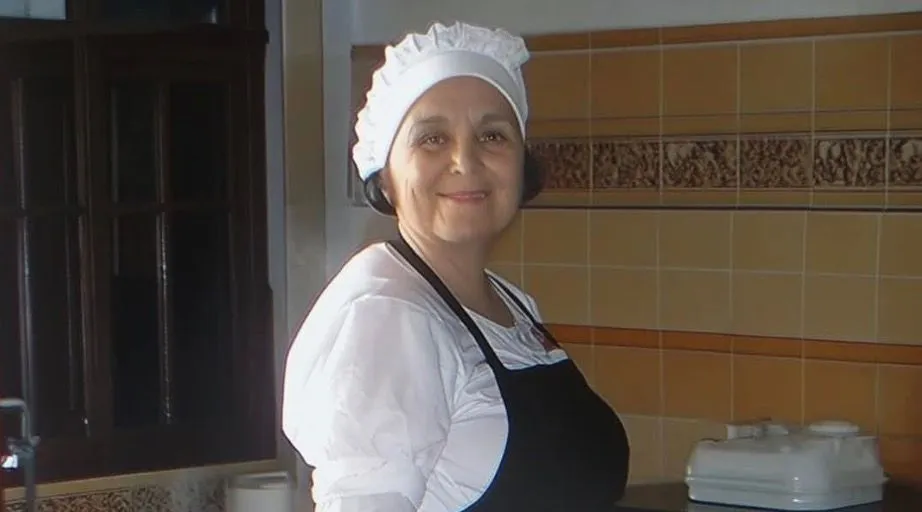My Fiancé’s 7-Year-Old Daughter Handles Breakfast & All the Household Chores Daily — I Was Surprised When I Learned the Reason Behind It
At first, I found it charming that my future stepdaughter would rise before the sun to prepare intricate breakfasts and tidy up the house. But my perspective shifted completely when I uncovered the heart-wrenching reason behind this seven-year-old’s obsession with being the ideal homemaker.
It started gradually. I’d hear Amila’s small footsteps descending the stairs in the early hours, the sound barely audible on the carpeted steps.
At just seven years old, she would diligently whip up pancake batter or scramble eggs each morning.
Initially, I found it endearing. Most kids her age were lost in dreams of magical creatures or whatever second graders imagine these days, but here she was, embodying the epitome of a responsible child.
However, as her behavior became a regular occurrence, my initial admiration turned into concern.
The first time I saw her carefully measuring coffee grounds into the machine, my heart almost stopped.
Standing there in her colorful pajamas, her dark hair tied neatly into pigtails, she maneuvered around the kitchen appliances before sunrise. It didn’t sit right with me.
“You’re awake early again, sweetie,” I remarked, observing her pour steaming coffee into mugs.
The counters sparkled with cleanliness, and the scent of fresh coffee wafted through the air. “Did you clean everything in here?”
Her face lit up with a wide, gap-toothed grin, her eagerness tugging at my heart.
“I wanted it to be perfect when you and Daddy woke up. Do you like the coffee? I figured out how to work the machine!”
The pride in her voice felt disproportionate for a child her age.
While it’s normal for kids to enjoy mastering “grown-up” tasks, something about her enthusiasm seemed rooted in an unspoken need for approval.
Looking around, I noticed the kitchen was immaculate, and the breakfast spread looked straight out of a lifestyle magazine.
How long had she been awake? How many mornings had she spent rehearsing this routine while we remained blissfully unaware?
“That’s so thoughtful of you, but you don’t need to do all this,” I told her, gently lifting her off the stool. “Why not sleep in tomorrow? I can make breakfast.”
She shook her head emphatically, her pigtails bouncing. “I like doing it. Really!”
The desperation in her tone was unsettling. No child should feel this anxious about skipping chores.
Ryan entered the room, stretching and yawning. “Something smells great!” he said, tousling Amila’s hair before grabbing a mug of coffee. “Thanks, princess. You’re turning into quite the little homemaker.”
I shot him a sharp look, but he was too engrossed in his phone to notice. The word “homemaker” lingered in my mind like a bitter aftertaste.
Watching Amila’s face brighten at his praise, my unease deepened.
This became our pattern—Amila playing house while we slept, me growing increasingly uneasy, and Ryan treating it all as perfectly normal.
But there was nothing normal about a child taking on such responsibilities of their own volition. It wasn’t cute seeing the dark circles under her eyes or the way she flinched when she dropped something, bracing for reprimand.
One morning, as we cleared the table after breakfast (I insisted on helping despite her protests), I decided it was time to get to the bottom of this.
The question had been gnawing at me for weeks, and I couldn’t push it aside any longer.
“Sweetie,” I said, crouching to her level as she wiped the table, “you don’t need to wake up so early to do all of this. You’re just a kid! It’s our job to take care of you, not the other way around.”
Her small shoulders tensed as she scrubbed at a spotless surface. “I just want everything to be perfect,” she murmured.
Her words gave me pause.
I gently took the cloth from her hands, noticing the faint tremor in her fingers. “Amila, love, tell me the truth. Why are you working so hard? Are you trying to make us happy?”
She avoided my gaze, fiddling with the hem of her shirt. The silence stretched, heavy with unspoken fears.
At last, she whispered, “I heard Daddy talking to Uncle Jack about my mom. He said if a woman doesn’t wake up early, cook, and do all the chores, no one will love or marry her.”
Her voice wavered as her lip quivered. “I’m scared… if I don’t do those things, Daddy won’t love me anymore.”
Her confession hit me like a blow to the chest. I stared at her, this sweet child burdened with such toxic beliefs, and felt a surge of anger and determination.
Generations of progress, yet here was my supposedly forward-thinking fiancé, perpetuating the same outdated nonsense that had held women back for centuries.
“Not in my house,” I muttered under my breath.
The next morning, I launched what I called Operation Wake-Up Call. After Ryan finished breakfast (cooked, of course, by his seven-year-old), I strolled into the kitchen wheeling the lawnmower.
“Hey, could you mow the lawn today?” I asked cheerfully. “And don’t forget the edges.”
He nodded agreeably. “Sure, no problem.”
The following day, I dumped a pile of freshly laundered clothes onto the table.
“Can you fold these neatly? Oh, and while you’re at it, could you clean the windows?”
“Alright…” His brow furrowed slightly as he glanced at me. “Anything else?”
By day three, when I asked him to clear the gutters and reorganize the garage, he couldn’t hold back his suspicion.
“What’s going on?” he asked, frowning. “You’ve got me doing all these chores out of nowhere.”
I smiled, a touch too sweetly. “Oh, nothing. Just making sure you stay useful. After all, if you don’t pull your weight, why should I marry you?”
His jaw dropped. “What? What are you even talking about?”
I squared my shoulders, steeling myself for what felt like a defining moment in our relationship.
“Ryan, do you know why Amila wakes up every morning to cook and clean?”
He shook his head, looking confused.
“She overheard you telling Jack that her mom wasn’t worth loving unless she did those things,” I explained. “Now she believes your love for her depends on how much she does for you.”
“I didn’t mean—” he began, but I cut him off.
“Intent doesn’t matter. Do you realize what that belief is doing to her? She’s a child, not a maid or a partner. And she needs to know your love is unconditional.”
Silence filled the room as realization dawned on him, followed by guilt and resolve.
That evening, I listened from the hallway as he knocked on Amila’s door. My heart raced, hoping I hadn’t pushed too far.
“Amila, sweetheart, can we talk?” he said gently. “You heard me say something about your mom that I shouldn’t have. But I need you to know it’s not true. I love you because you’re my daughter, not because of what you do.”
“Really?” she asked softly, her voice tinged with hope. “Even if I don’t make breakfast?”
“Even if you never make breakfast again,” he said, his voice thick with emotion. “You don’t need to do anything to earn my love. You’re already perfect.”
Tears streamed down my face as I heard them embrace, their sniffles mingling with the creaks of the settling house.
In the weeks that followed, subtle but meaningful changes unfolded. Ryan took on more household duties unprompted and chose his words more carefully, ensuring he didn’t reinforce harmful stereotypes.
Sometimes, I’d catch him watching Amila play, his expression a mixture of love and regret, as if truly seeing her for the first time.
Love, I realized, wasn’t just about affection or good times. It was about hard conversations, accountability, and breaking harmful patterns.
Sitting at the breakfast table as a family, no one having sacrificed their sleep or innocence, I felt a quiet sense of triumph.
Outdated nonsense? Not under this roof.






